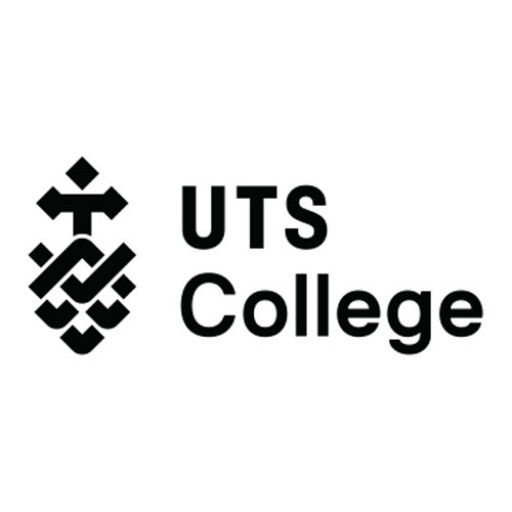This qualification reflects the role a technical pro with higher level skills and knowledge of telecommunications and information technology networks using internet protocol (IP) systems who are able to:forecast network growth to enterprise network planningdesign and manage IP based network telecommunications equipmentimplement convergence engineering in enterprise telecommunications networksdesign and manage wireless and optical network telecommunications architectures for high speed broadband capability.Licensing /Regulatory InformationWork works in the occupational areas where this unit might be properly used are at the mercy of regulatory requirements. Consult with this ICT Implementation Guide Companion Volume or even the relevant regulator for details of accreditation, legislative or certification requirements.
Program Overview: Telecommunications Network Engineering
The Telecommunications Network Engineering program at Milcom Institute is designed to provide students with comprehensive knowledge and practical skills necessary to excel in the rapidly evolving field of telecommunications. This program focuses on the theoretical foundations of communication systems, digital signal processing, and network architecture, combined with hands-on training in modern telecommunication technologies. Students will learn about the design, implementation, and management of complex communication networks, including wired, wireless, and hybrid systems. The curriculum covers essential subjects such as data transmission, switching systems, network security, fiber optics, radio frequency engineering, and network protocols. Students are also introduced to emerging trends like 5G technology, Internet of Things (IoT), and cloud-based network solutions, preparing them for future industry developments.
The program emphasizes practical application through laboratory work, project-based assignments, and internships with leading telecommunications companies. This approach ensures that students develop not only technical competencies but also problem-solving skills, teamwork, and professional communication abilities. Milcom Institute's state-of-the-art facilities and partnerships with industry leaders enable students to gain real-world experience and stay abreast of the latest technological advancements. Graduates of the Telecommunications Network Engineering program are equipped to pursue careers in network design, deployment, and maintenance across various sectors such as telecommunications providers, internet service providers, corporate IT departments, and government agencies. They will also have the foundation to pursue graduate studies or certifications to further enhance their expertise in specialized areas. Overall, this program aims to prepare highly skilled professionals capable of contributing effectively to the development and optimization of modern telecommunication infrastructures worldwide.
The program requirements for the Telecommunications Network Engineering degree at Milcom Institute include a combination of core coursework, practical laboratory work, and project-based assessments designed to equip students with both theoretical knowledge and practical skills essential for the telecommunications industry. Applicants are typically expected to have completed a secondary education with a strong emphasis on mathematics, physics, and technology subjects, demonstrating a solid foundational knowledge necessary for higher-level studies in engineering. Prospective students must submit a completed application form, official transcripts, and proof of proficiency in English, such as TOEFL or IELTS scores, if applicable. Additionally, some courses may require applicants to pass entrance examinations or interviews to assess their technical aptitude and motivation for the field. The curriculum comprises fundamental courses in digital communications, network systems, radio frequency engineering, and cybersecurity, along with specialized modules focusing on modern networking technologies such as 5G, Internet of Things (IoT), and cloud-based infrastructure. Students are required to participate in laboratory exercises that involve configuring real-world network hardware, software development for communication protocols, and troubleshooting network issues. Internships and industrial training are integral parts of the program, providing students with practical experience in telecommunications companies. To successfully graduate, students must complete a series of assessments including written exams, project reports, and a final thesis project, which demonstrates their ability to apply multidisciplinary knowledge to solve complex telecommunications problems. The program also emphasizes soft skills such as teamwork, communication, and project management to prepare graduates for leadership roles in the industry. Financial aid, scholarships, and dedicated support services are available to eligible students to facilitate their educational journey. Overall, the program is designed to produce highly skilled professionals capable of designing, maintaining, and advancing telecommunications networks in a rapidly evolving technological landscape.
The Telecommunications Network Engineering program at Milcom Institute offers a variety of financing options to support prospective students in pursuing their education. Students can apply for state-funded scholarships and grants, which are allocated based on academic merit and financial need. These scholarships aim to make higher education more accessible to talented individuals from diverse backgrounds. Additionally, the institute provides a limited number of tuition waivers for outstanding applicants, reducing the financial burden for top-performing students.
For those who do not qualify for scholarships or grants, Milcom Institute offers flexible payment plans that allow students to spread out tuition payments over the duration of their studies. This approach helps students manage their finances more effectively without compromising their educational goals. Moreover, the institute collaborates with several banks and financial institutions to offer student loans with favorable interest rates and repayment terms. These loans can be used to cover tuition fees, textbooks, and living expenses, thereby easing the financial stress associated with higher education.
Milcom Institute also encourages part-time employment opportunities on campus, enabling students to gain work experience while earning extra income to support their studies. The institute's career services provide guidance on securing internships and part-time jobs linked to the telecommunications industry, which can help students finance their education and build professional networks simultaneously.
Furthermore, there are periodic regional and national competitions and contests organized by Milcom Institute, with prize funds and sponsorships that can be utilized to support students' educational expenses. The institute also participates in government and private sector programs aimed at promoting technical education, providing additional avenues for financial support and funding.
In summary, students enrolled in the Telecommunications Network Engineering program have access to multiple financing options, including government-funded scholarships, tuition waivers, installment plans, student loans, and on-campus employment. These various mechanisms are designed to make the program affordable and accessible, ensuring that talented individuals can gain the technical skills necessary for a career in telecommunications without financial barriers.
The Telecommunications Network Engineering program at Milcom Institute is designed to provide students with comprehensive knowledge and practical skills in the field of telecommunications and network technologies. This program focuses on the critical aspects of designing, implementing, and managing advanced telecommunication systems, including wired and wireless networks, data transmission, networking protocols, and cybersecurity measures. Students will gain a solid foundation in both theoretical concepts and hands-on experience, preparing them for careers in telecommunications companies, ISPs, network administration, and related sectors.
Throughout the course, students study core topics such as network architecture, signal processing, digital communication systems, and network security. The curriculum also emphasizes emerging technologies like 5G, fibre optics, IoT, and cloud-based network solutions, ensuring that graduates are equipped to work with the latest innovations in the industry. Practical training involves laboratory work, project development, and industry internships, fostering the skills needed to analyze, design, and optimize complex telecommunication networks.
The program aims to develop critical thinking, problem-solving abilities, and professional competence, enabling students to address real-world challenges in telecommunications infrastructure. Graduates will be prepared to pursue roles such as network engineers, telecommunications consultants, system administrators, or project managers in both private and public sectors. The institute collaborates with leading industry partners to provide students with up-to-date knowledge and career opportunities.
Milcom Institute's Telecommunications Network Engineering program also includes courses on regulatory standards and business aspects related to telecommunications, giving students a well-rounded perspective on the industry. The faculty comprises experienced instructors and industry experts, ensuring high-quality education aligned with current market needs. Upon completion, students receive a diploma recognized nationally and internationally, opening pathways for further education or professional development in the fast-evolving telecommunications domain.









